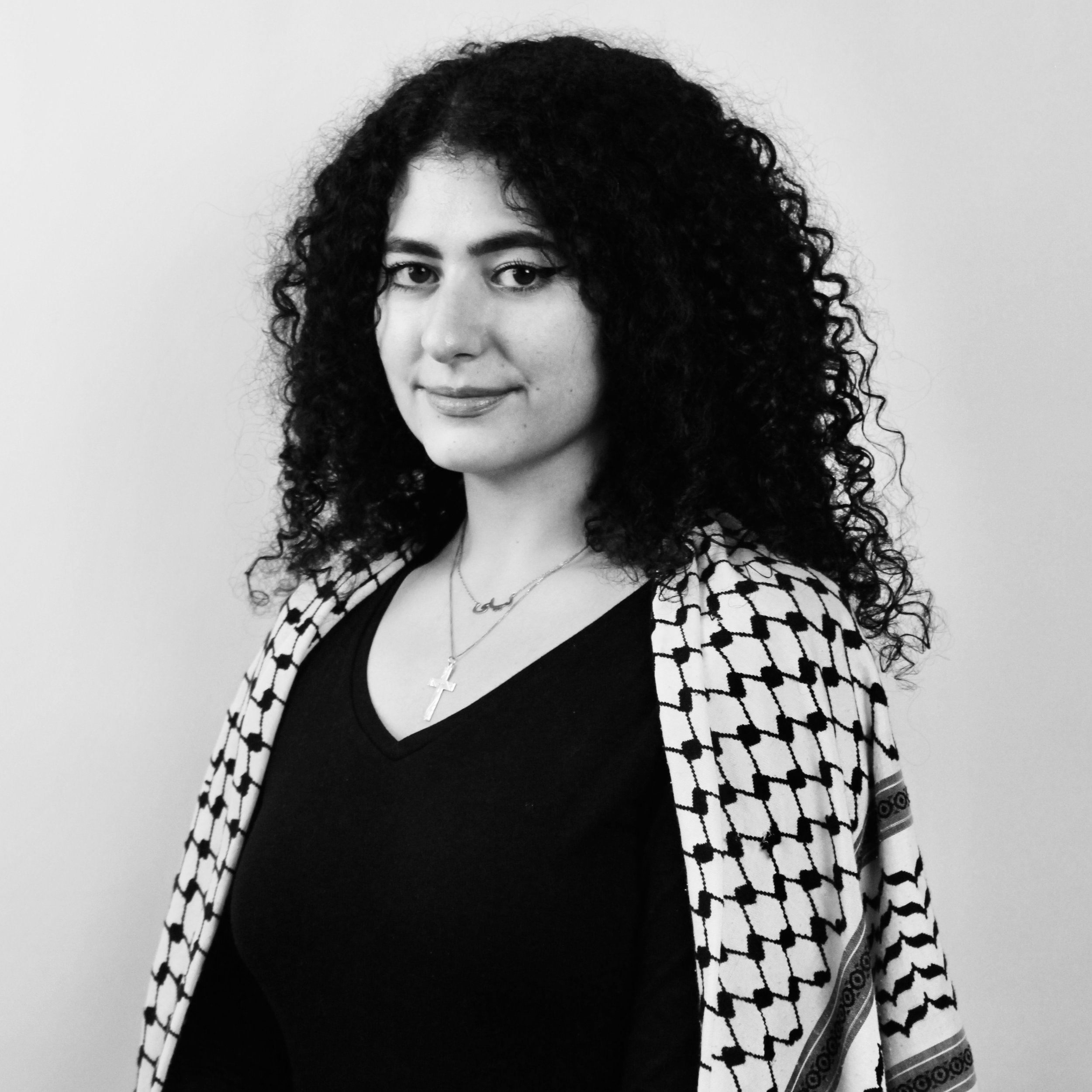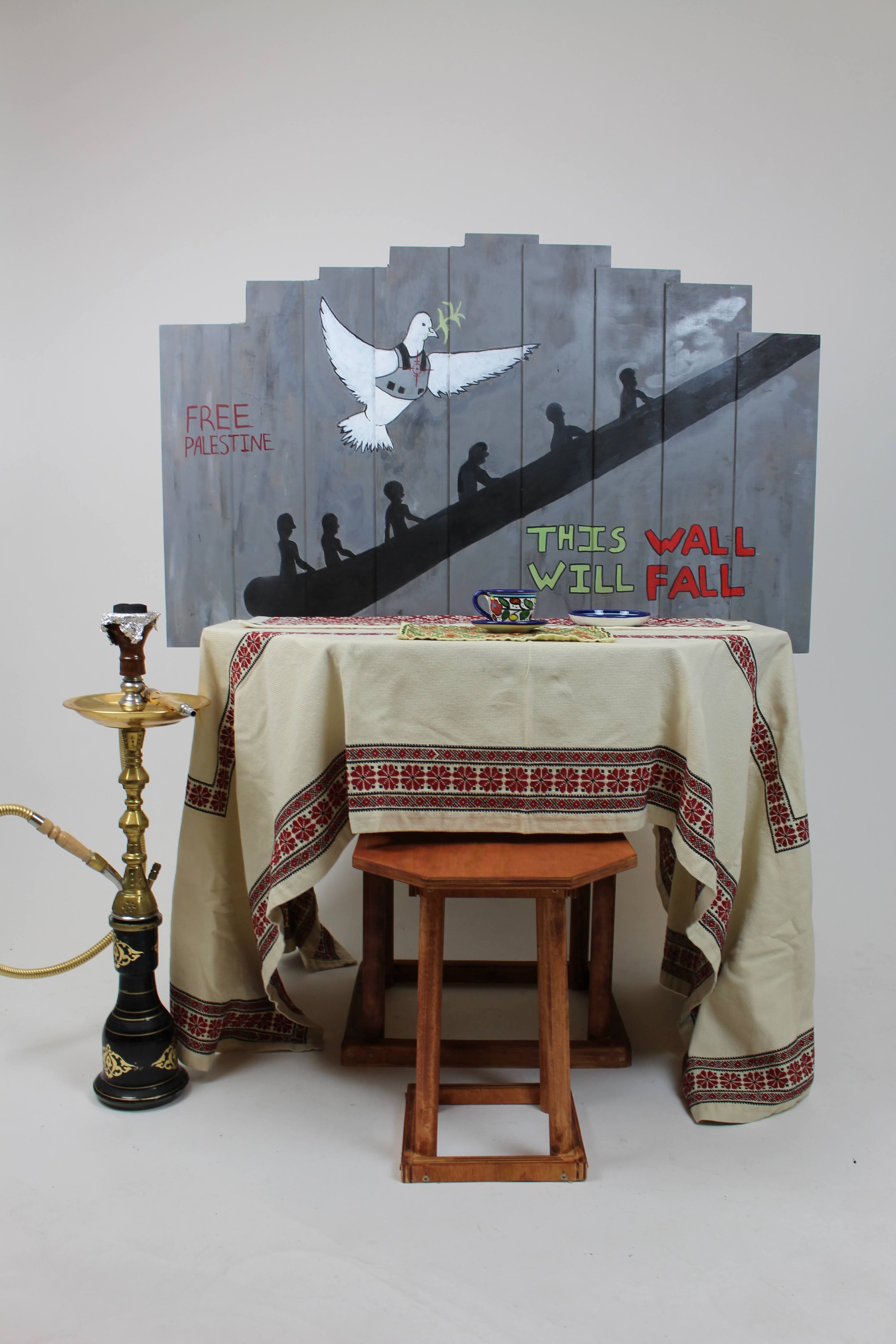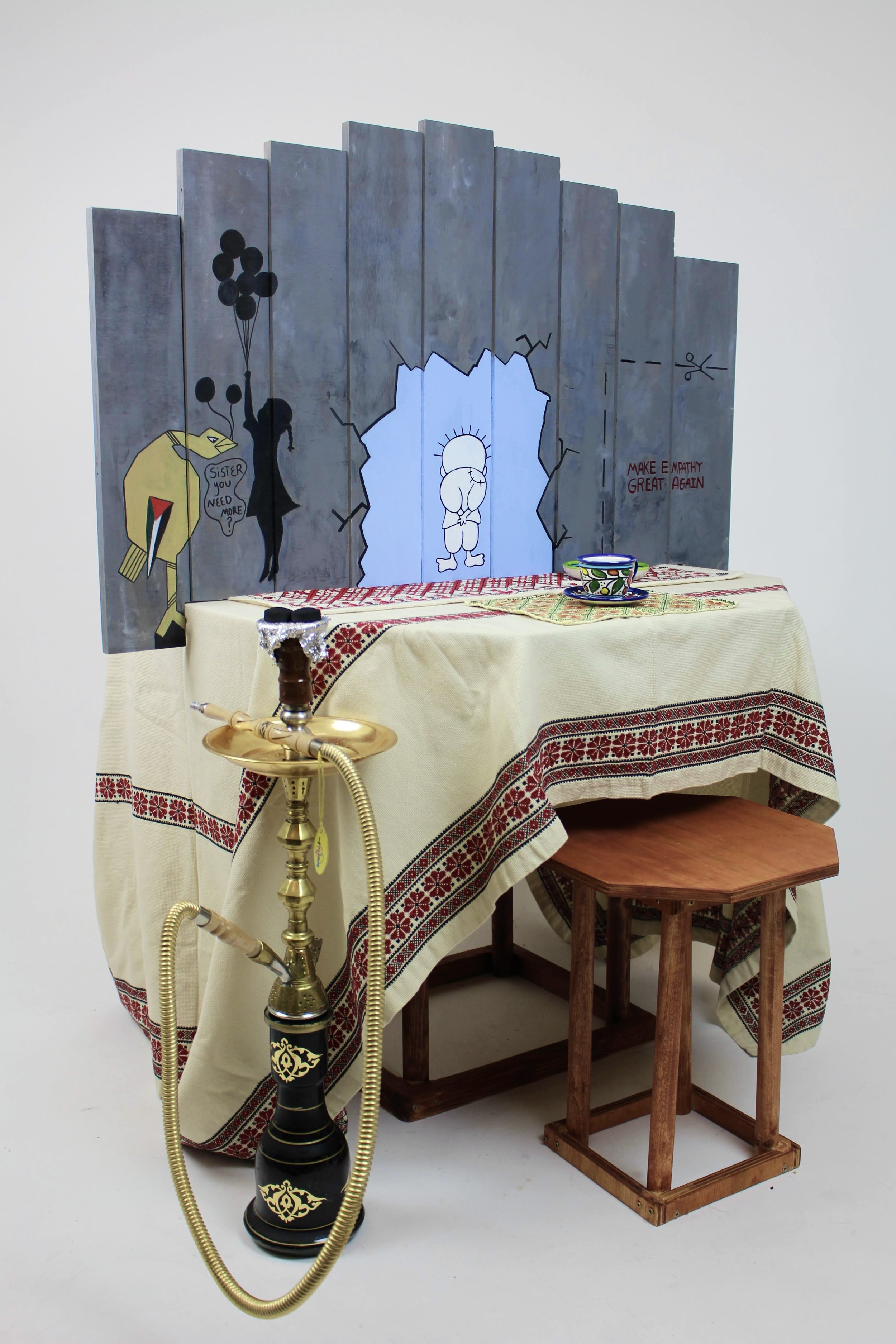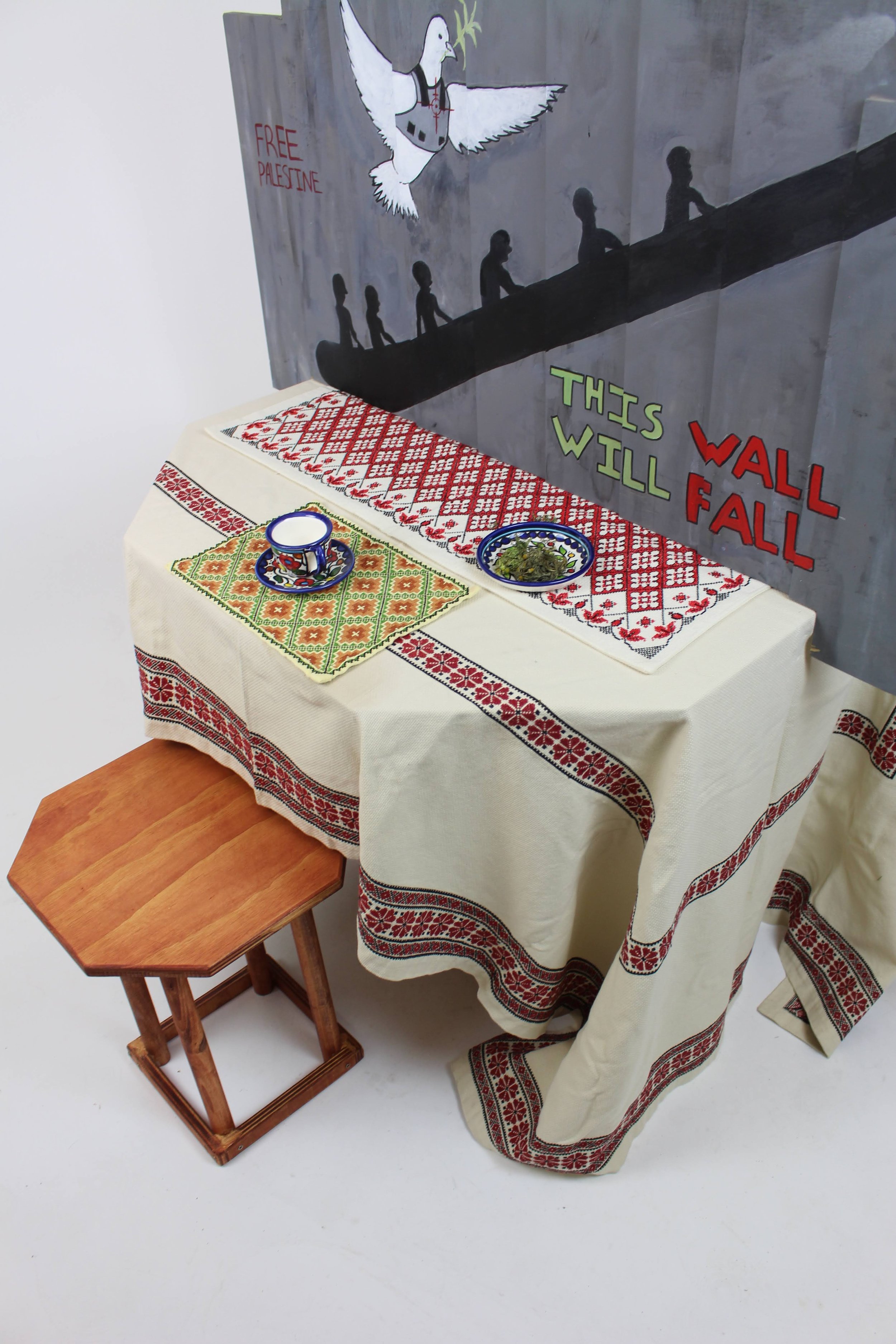Laila Zayed
Tea Time Under Apartheid
When I was young, I used to spend my summers with my grandparents in San Francisco. My grandfather, or Sedo, as I would call him, was a remarkable man. He earned his PhD from the University of Chicago and was the author of several books on Arab history. He would stay up late writing before retiring to the kitchen where I would join him for a cup of tea. We talked about Palestine, politics, and the history of the Arab world. I learned so much from these late-night talks about my culture and my ancestry and this inspired my activism and engagement with the Palestinian movement. Hence, the inspiration of tea in this piece. Tea Time Under Apartheid begs the question: When one thinks about Palestine, what goes through one’s head? For most people, the subject is strictly political. The first thing one notices from this piece is the wall that blocks one’s view of the person sitting opposite. The apartheid wall is the largest physical manifestation of the occupation, and this is represented by the partition that divides the table, bringing to light the reality of separation and lack of freedom. Palestinians experience such feelings, and worse, as they move through checkpoints and across borders.
As a result, the humanity of Palestine becomes buried in politics, which is why, as one looks more closely at the table, the beauty of Palestinian culture—the humanizing factor—is ever present amid the dehumanizing apartheid wall.
Contact:
Laila Zayed






